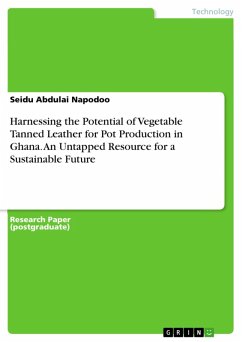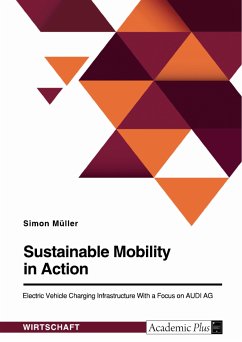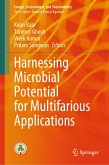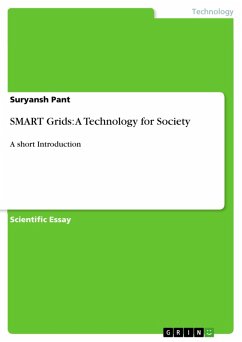Research Paper (postgraduate) in the subject Engineering - General, , language: English, abstract: Aiming to pioneer a revolution in the Ghanaian pottery industry, this study explores the largely untapped potential of vegetable tanned leather for pot production, a practice traditionally dominated by clay, cement, and metal materials. The focus is on manipulating this durable and flexible material - indigenous tanned leather - to create pots that offer a distinctive blend of functionality and aesthetic appeal. Through a qualitative research approach involving in-depth interviews and observations, this study engaged with a diverse group of respondents from the Tamale Metropolis - including producers, sellers, users, and leather studies experts. The findings underscore the effectiveness of indigenous leather as an alternative material for contemporary pot production, heralding a wealth of untapped opportunities in Ghana's leatherwork industry. The study offers a strong case for reconceptualizing leather's conventional uses in the production of items such as bags, sandals, and footrests, to include pot production. This paradigm shift is set to stimulate human resource development, promote sustainable practices, and drive innovation in the country's pottery sector.
Dieser Download kann aus rechtlichen Gründen nur mit Rechnungsadresse in A, B, BG, CY, CZ, D, DK, EW, E, FIN, F, GR, HR, H, IRL, I, LT, L, LR, M, NL, PL, P, R, S, SLO, SK ausgeliefert werden.









